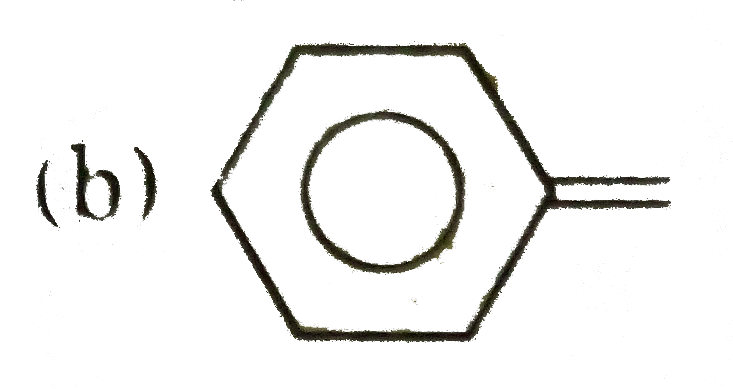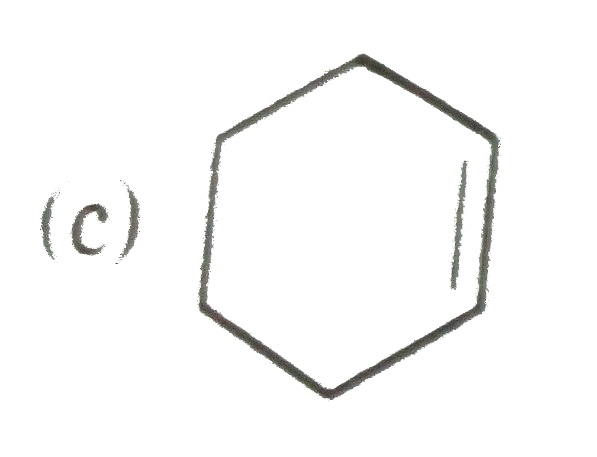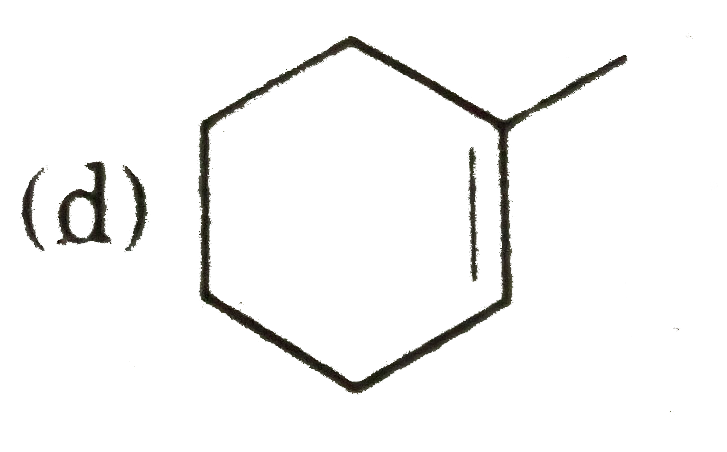Hydration of propyne gives -
1-Propanol
2-Propanol
Propanal
Propanone
The correct Answer is:D
To determine the product of the hydration of propyne, we can follow these steps:
Step 1: Understand Hydration
Hydration is the addition of water (H₂O) to an alkene or alkyne in the presence of an acid catalyst, typically sulfuric acid (H₂SO₄). In this case, we are hydrating propyne (C₃H₄).
Step 2: Write the Reaction
The reaction can be represented as:
C₃H₄+H₂OH₂SO₄−−−−→Product
Step 3: Identify the Structure of Propyne
Propyne has the structure:
CH₃C≡CH
This means it has a triple bond between the second and third carbon atoms.
Step 4: Protonation of the Alkyne
In the presence of sulfuric acid, the triple bond will be protonated. The proton (H⁺) will add to one of the carbon atoms involved in the triple bond, forming a more stable carbocation. The more stable carbocation will be a secondary carbocation.
Step 5: Formation of the Carbocation
When the proton adds to the terminal carbon (C1), we get:
CH₃C+H-CH₂
This is a secondary carbocation.
Step 6: Nucleophilic Attack by Water
Water (H₂O) will then attack the carbocation, leading to the formation of an alcohol. The oxygen from water will bond with the carbocation, and we will have:
CH₃C(OH)-CH₂
Step 7: Deprotonation
The oxygen will have a positive charge after the attack, so it will lose a proton (H⁺) to form the alcohol:
CH₃C(OH)-CH₂
Step 8: Final Product
The final product after hydration of propyne is:
CH₃C(OH)-CH₂
This compound is known as 2-propanol or isopropyl alcohol.
Summary of the Reaction
The hydration of propyne results in the formation of 2-propanol.
---
Hydration is the addition of water (H₂O) to an alkene or alkyne in the presence of an acid catalyst, typically sulfuric acid (H₂SO₄). In this case, we are hydrating propyne (C₃H₄).
The reaction can be represented as:
C₃H₄+H₂OH₂SO₄−−−−→Product
Propyne has the structure:
CH₃C≡CH
This means it has a triple bond between the second and third carbon atoms.
In the presence of sulfuric acid, the triple bond will be protonated. The proton (H⁺) will add to one of the carbon atoms involved in the triple bond, forming a more stable carbocation. The more stable carbocation will be a secondary carbocation.
When the proton adds to the terminal carbon (C1), we get:
CH₃C+H-CH₂
This is a secondary carbocation.
Water (H₂O) will then attack the carbocation, leading to the formation of an alcohol. The oxygen from water will bond with the carbocation, and we will have:
CH₃C(OH)-CH₂
The oxygen will have a positive charge after the attack, so it will lose a proton (H⁺) to form the alcohol:
CH₃C(OH)-CH₂
The final product after hydration of propyne is:
CH₃C(OH)-CH₂
This compound is known as 2-propanol or isopropyl alcohol.
The hydration of propyne results in the formation of 2-propanol.
Topper's Solved these Questions
- HYDROCARBON BOOK - MOTIONCHAPTER - HYDROCARBON EXERCISE - Exercise - 2 (Level-I)
29 Videos
- HYDROCARBON BOOK - MOTIONCHAPTER - HYDROCARBON EXERCISE - Exercise - 3
14 Videos
- HYDROCARBON BOOK - MOTIONCHAPTER - HYDROCARBON EXERCISE - QUESTIONS
6 Videos
- GRIGNARD REAGENTBOOK - MOTIONCHAPTER - GRIGNARD REAGENTEXERCISE - EXERCISE-2
16 Videos
- IONIC EQUILIBRUIMBOOK - MOTIONCHAPTER - IONIC EQUILIBRUIMEXERCISE - Exercise -4 (Level -II)
14 Videos
Similar Questions
Knowledge Check
The isomer of propyne
AAlleneBPropeneCCyclo propaneDPropaneHBO, oxymercuration-demercuration and acid catalysed hydration will not give not give same product in :
A B
B C
C D
D
Which of the following alkene on hydration would give tert-butyl alcohol ?
AEthyleneBIsobutyleneCPropyleneDn-Butylene
(HBO) Hydroboration and Oxymercuration-Demercuration, and acid catalysed hydration will not give the same product in
View SolutionHBO. Oxymericuration-demercuration and acid catalysed hydration will not give same product in
View SolutionCarbide which react with water to give propyne is
View SolutionCarbide which react with water to give propyne is
View SolutionThe molecular formula of Propyne is
View Solution